The Rising Tide of Competency-based Medical Education: A Global View
What is wrong with health professions education? Does it really need a “fix”? Why are so many schools and professions turning to competency-based medical education (CBME)? This session will provide a state-of-the-art overview of the CBME movement and its implications for all medical and health professions educators.
CBME has its origins in teacher education and the outcomes accountability movement in contemporary societies. The WHO called for all health professions programs to use a CBME approach in 1978. Only in recent years has this approach to training gained real momentum, with major standards bodies and whole systems converting.
In this webinar, we will review the origins, rationale, and elements of CBME design. We will provide a tour of the current landscape of competency-based changes around the world using a framework from the International CBME Collaborators. Finally, we will dive deeper into the fundamental redesign of Canadian medical education to illustrate just how different a competency-based world can be.
Learning objectives
By the end of this session, participants will be able to:
- Define “CBME” and discuss its origins
- Describe the van Melle framework of CBME Core Components
- Describe some of the CBME innovations from around the world, and
- Describe Canada’s Competence By Design CBME project, the biggest meded change in Canadian history
The Future of Family Medicine – In China
This web seminar will focus on the work of the International Primary Care Educational Alliance (IPCEA) over the past 10 years in China. From the development of family medicine residencies to the retraining of former subspecialists who are now providing primary care services in Chinese Community Health Centers, the IPCEA has been working with local and provincial health and family planning commissions, medical universities and others to meet the goals of the triple aim: enhancing patient experience (access, enhanced quality of care), improving population health, and reducing the cost of the care delivered.
Global healthcare overview of European model
Recruitment and retention in junior doctors: global issues, local solutions?
Medical education and training systems in the most countries allow doctors in training considerable individual choice about which speciality they select and where they wish to train. This flexibility is desirable to the individual, but not necessarily for the country’s health service: many countries cannot recruit doctors into certain specialties and/or to particular geographical areas. Many studies have identified a number of factors which influence medical and other healthcare careers decision making. However, only relatively recently have methodologies been adopted which examine which are the most important “push-pull” factors in healthcare professional career decision making. In this talk I will give an overview of the global issues, then discuss my own work and that of others in relation to the labour-market choices of healthcare professionals. I will conclude by discussing ways in which we can best select and support the healthcare workforce in order to start to address workforce shortages.
A European Case Study of Rural Health System Strengthening through Rural Medical Academy Development
- Facilitated Exchange on the Role of Medical Educators in Global Health System Strengthening with reference to rural health systems
- Presentation of a Case Study on Rural Medical Academy Development in the West of Ireland
- Dialogue on the human resource challenges in the provision of rural health professional coverage worldwide.
- Discuss the transitioning requirements of the Medical Student moving to the rural health environment.
- Consider the reciprocal benefits to the rural host institution and opportunities for academic advancement
Challenges and Opportunities for (New) Medical Schools in Africa
Over 100 new medical schools are projected to open in Africa over the next decade. These new schools face daunting challenges but are also presented with unique opportunities. This talk will focus on these challenges and opportunities including: the development of context-specific curricula; development of equitable admissions policies; establishment of postgraduate training programs with contextualized accreditation standards; development of sustainable research programs; development inter-and transprofessional programs; and establishment of viable faculty and health worker recruitment and retention policies. The talk will discuss initiatives of consortia such as the former Medical Education Partnership Initiative (MEPI) and the Consortium of New Sub Sahara African Medical Schools (CONSAMS) as models for promoting health professional education in Africa.
Lessons from the Design and Implementation of a Pediatric Critical Care and Emergency Medicine Training Program in a Low Resource Country – The South American Experience
For more than 60 years, the world has recognized the need for pediatric critical care (PCC). Today, most low- and middle-income countries (LMICs) still lack access to pediatric intensive care units (PICUs) and specialists, resulting in high rates of morbidity and mortality. These disparities result from several infrastructure and socioeconomic factors, chief among them is the lack of trained PCC and emergency medicine (PCCEM) frontline providers. In this seminar, we describe a continuing medical education model to increase frontline PCC capacity in Ecuador. The Laude in PCCEM is a program created by a team of Ecuadorian physicians at the University San Francisco de Quito School of Medicine. The program is aimed at providers with no formal training in PCC and who, nonetheless, care for critically ill children. The program resulted in stronger, more cohesive PICU teams with improved resuscitation times and coordination during simulation rounds. In hospitals that implemented the program, we saw decrease PICU mortality rates. Our aim is to identify the opportunities and challenges learned and to offer lessons for other countries that use similar models to cope with the lack of local resource availability.
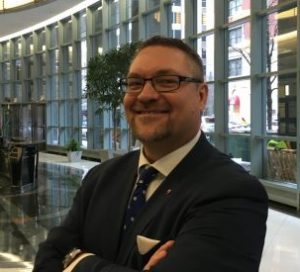 Dr. Jason R. Frank is a clinician-educator focussing on all aspects of health professions training.
Dr. Jason R. Frank is a clinician-educator focussing on all aspects of health professions training.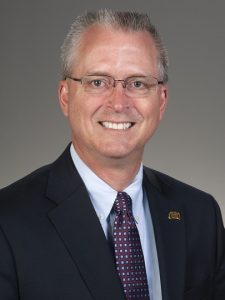 William J. Burke, DO, FACOFP serves as Dean of the Ohio University Heritage College of Osteopathic Medicine (OUHCOM) Dublin Campus. His previous positions included Vice President of Medical Education and Program Director of the Family Medicine Residency Program at OhioHealth Doctors Hospital. He is also an associate professor of family medicine with tenure at OUHCOM. Dr. Burke has been actively involved in graduate and undergraduate medical education for over 20 years. He received his BA in history from Capital University and his doctorate in Osteopathic Medicine in 1988 from Ohio University. Dr. Burke is board-certified in Osteopathic Family Medicine and Osteopathic Manipulative Medicine. He is also a member of the Board of Trustees of the American Osteopathic Association, a member of the Board of Directors of the Osteopathic International Alliance and a founding director of the International Primary Care Educational Alliance.
William J. Burke, DO, FACOFP serves as Dean of the Ohio University Heritage College of Osteopathic Medicine (OUHCOM) Dublin Campus. His previous positions included Vice President of Medical Education and Program Director of the Family Medicine Residency Program at OhioHealth Doctors Hospital. He is also an associate professor of family medicine with tenure at OUHCOM. Dr. Burke has been actively involved in graduate and undergraduate medical education for over 20 years. He received his BA in history from Capital University and his doctorate in Osteopathic Medicine in 1988 from Ohio University. Dr. Burke is board-certified in Osteopathic Family Medicine and Osteopathic Manipulative Medicine. He is also a member of the Board of Trustees of the American Osteopathic Association, a member of the Board of Directors of the Osteopathic International Alliance and a founding director of the International Primary Care Educational Alliance.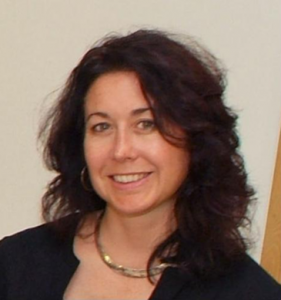 Professor Jennifer Cleland is John Simpson Chair of Medical Education Research, and Director of the Centre for Healthcare Education Research and Innovation (CHERI), University of Aberdeen, Scotland; Chair of the Association for the Study of Medical Education (ASME); Director of the Scottish Medical Education Research Consortium (SMERC); Lead for the Association for Medical Education Europe (AMEE) Research Committee; Chair of the Board of Management for Medical Education; Associate Editor for Perspectives in Medical Education; an Invited Member of the Wilson Centre, Toronto; Associated Professor at the Uniformed Services University of the USA.
Professor Jennifer Cleland is John Simpson Chair of Medical Education Research, and Director of the Centre for Healthcare Education Research and Innovation (CHERI), University of Aberdeen, Scotland; Chair of the Association for the Study of Medical Education (ASME); Director of the Scottish Medical Education Research Consortium (SMERC); Lead for the Association for Medical Education Europe (AMEE) Research Committee; Chair of the Board of Management for Medical Education; Associate Editor for Perspectives in Medical Education; an Invited Member of the Wilson Centre, Toronto; Associated Professor at the Uniformed Services University of the USA.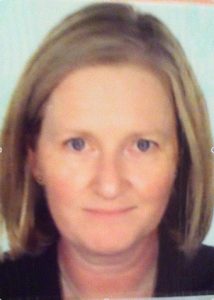 Dr. Méabh Ni Bhuinneáin: MD FRCOG MRCPI MICGP MSc Public Health is a Consultant Obstetrician/Gynaecologist at Mayo University Hospital since 2001. She qualified in Medicine at University College Dublin (1990) and completed specialist training in both General Practice & Obstetrics/Gynaecology in Ireland and Australia. She is Dean of Medical Education, Mayo Medical Academy, NUI Galway and National Speciality Director for Basic Specialty Training, RCPI.
Dr. Méabh Ni Bhuinneáin: MD FRCOG MRCPI MICGP MSc Public Health is a Consultant Obstetrician/Gynaecologist at Mayo University Hospital since 2001. She qualified in Medicine at University College Dublin (1990) and completed specialist training in both General Practice & Obstetrics/Gynaecology in Ireland and Australia. She is Dean of Medical Education, Mayo Medical Academy, NUI Galway and National Speciality Director for Basic Specialty Training, RCPI.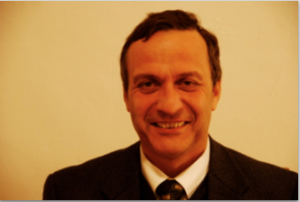 Quentin Eichbaum was born and raised in Namibia and South Africa. He initially studied law at the University of Cape Town and then completed his MD, MPH, PhD and postdoctoral studies at Harvard Medical School and the Massachusetts Institute of Technology in Boston followed by residency and fellowship training at Massachusetts General Hospital. He is currently associate professor of Pathology, Microbiology and immunology and associate professor of Medical Education and Administration at Vanderbilt University where he also directs the a fellowship in pathology as well as the Vanderbilt Pathology Program in Global Health and the Vanderbilt Pathology Education Research Group. He serves on numerous national and international global health education and pathology committees, including at ASCP, ASFA, AABB, and chairs the newly established Global Transfusion Forum (GTF) of the AABB. He chairs the Education Committee of the Consortium of Universities for Global Health (CUGH) (the largest academic global health organization in the world with 30 00 members and 157 academic institutions) and serves on the CUGH Board of Directors. He co-founded the Consortium of New Sub-Sahara African Medical Schools (CONSAMS) and is extensively involved in health professional education and clinical medicine in several African countries.
Quentin Eichbaum was born and raised in Namibia and South Africa. He initially studied law at the University of Cape Town and then completed his MD, MPH, PhD and postdoctoral studies at Harvard Medical School and the Massachusetts Institute of Technology in Boston followed by residency and fellowship training at Massachusetts General Hospital. He is currently associate professor of Pathology, Microbiology and immunology and associate professor of Medical Education and Administration at Vanderbilt University where he also directs the a fellowship in pathology as well as the Vanderbilt Pathology Program in Global Health and the Vanderbilt Pathology Education Research Group. He serves on numerous national and international global health education and pathology committees, including at ASCP, ASFA, AABB, and chairs the newly established Global Transfusion Forum (GTF) of the AABB. He chairs the Education Committee of the Consortium of Universities for Global Health (CUGH) (the largest academic global health organization in the world with 30 00 members and 157 academic institutions) and serves on the CUGH Board of Directors. He co-founded the Consortium of New Sub-Sahara African Medical Schools (CONSAMS) and is extensively involved in health professional education and clinical medicine in several African countries.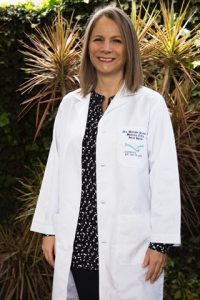 Dr. Grunauer is the Dean, the Director of Critical Care Areas, and a full-time professor at the Universidad San Francisco de Quito Medical School in Quito, Ecuador; the founder, Academic Director, and an attending of the Pediatric Intensive Care Unit of the Hospital de los Valles/Universidad San Francisco de Quito; and a Visiting Faculty Member at Johns Hopkins University. She is also the director of Ecuador’s Advanced Pediatric Life Support education program. Dr. Grunauer has dedicated thousands of hours to improving the quality of pediatric intensive and palliative care in Ecuador and other low resource settings through the development of continuing medical education, new models of care and PICU protocols, and innovative research studies to determine best-practices in these areas. She is a member of the highly prestigious Ecuadorian Academy of Medicine, a recipient of various local and international research grants, and the recipient of the 2016 Martha Bushore-Fallis APLS award for distinguished and innovative instructors of Advanced Pediatric Life Support. She is currently completing international research on pediatric palliative care practices, disaster relief, and palliative care education technology.
Dr. Grunauer is the Dean, the Director of Critical Care Areas, and a full-time professor at the Universidad San Francisco de Quito Medical School in Quito, Ecuador; the founder, Academic Director, and an attending of the Pediatric Intensive Care Unit of the Hospital de los Valles/Universidad San Francisco de Quito; and a Visiting Faculty Member at Johns Hopkins University. She is also the director of Ecuador’s Advanced Pediatric Life Support education program. Dr. Grunauer has dedicated thousands of hours to improving the quality of pediatric intensive and palliative care in Ecuador and other low resource settings through the development of continuing medical education, new models of care and PICU protocols, and innovative research studies to determine best-practices in these areas. She is a member of the highly prestigious Ecuadorian Academy of Medicine, a recipient of various local and international research grants, and the recipient of the 2016 Martha Bushore-Fallis APLS award for distinguished and innovative instructors of Advanced Pediatric Life Support. She is currently completing international research on pediatric palliative care practices, disaster relief, and palliative care education technology.